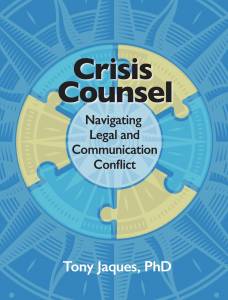What do European Football and Australia Post have in common?
by Tony Jaques PhD, Director of Issue Outcomes Pty Ltd, for people who work in issue and crisis management, author of Crisis Counsel: Navigating Legal and Communication Conflict.
Stakeholders are the essential foundation of any communication strategy especially issue and crisis management and two recent public debacles show how you ignore those stakeholders at your peril. It took just three days for the collapse of the proposed new European Super League soccer competition, and a similar period for Australia Post to reverse a decision to ban handling of perishable food.
The two cases might differ in scale and impact, but both were seemingly caused by a fundamental failure to recognise and involve key stakeholders.
After some millionaire football club owners announced the establishment of a new European Super League with 12 top teams, it was predictable that angry football fans would complain about lack of consultation. However, it was reported that even the managers and coaches of some of the clubs concerned were kept in the dark.
When Prime Minister Boris Johnson, government ministers, football governing bodies and even the Duke of Cambridge joined the protest, the whole scheme was doomed. Research shows words really matter how hateful rhetoric connects to real-world violence
In the same week, government-owned Australia Post announced it would cease delivering perishable food, supposedly because of inconsistent regulations between states. Cue inevitable protest from customers and panicked food producers whose business had proved a profitable boost for Australia Post revenue during the Covid lockdown. Add condemnation from the government and that plan too was abandoned within days.
In the Super League debacle, Arsenal apologised to their fans and said they had “made a mistake”, adding they were withdrawing after listening to supporters and the “wider football community”. Manchester United similarly said they had “listened carefully to the reaction from fans, the UK government and other key stakeholders, ” in making their decision.
The collapse of the plan was widely portrayed as a victory for people power”, but it was no such thing. No amount of consultation would have ever appeased rusted-on fans.
The reality is promoters of the new league failed to consult critical stakeholders namely footballs governing bodies, who promptly threatened to ban clubs and players from lucrative local and international competition and from representing their countries in the World Cup. And that was before they faced the full weight of the government in Britain, which was planned to provide half the participating clubs.
Equally ill-conceived was the perishable food handling ban by Australia Post, which was announced in mid-April to take effect in June. Declaring an embarrassing backflip, Australia Post proposed a new industry working forum co-chaired by a government minster to address cross-state regulatory issues involved with moving perishable goods around the country.
Said Australia Post acting group chief executive Rodney Boys: “We recognise the original date for ceasing perishable transport through our network would cause significant disruption to small businesses . . . Through this new forum, we will better understand what our customer capabilities and needs are and work hand-in-hand with regulators to determine where changes may be required.”
Fine sentiments, though truly a statement of the blindingly obvious. They had blithely ignored the basic principle that understanding stakeholder capabilities and needs should come before any announcement, not afterwards when it all goes pear-shaped (unless it was a misguided ploy to put pressure on regulators).
There is no question that European football is overdue for restructure, or that Australia’s perishable food delivery by mail needs review. But the real question for now is how, in this day and age, executive managers could so willfully ignore their stakeholders and presumably wonder why it all went bad.
A Parting Thought
If stakeholders think there is a risk or crisis, there is one.
– Sherry Holladay and Tim Coombs
Learn more about Reputation Risk in Tony Jaques’ new book, Crisis Counsel: Navigating Legal and Communication Conflict.


